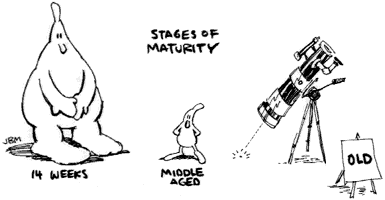
When the USA president is talking with reporters he is standing on podium and facing the camera lights; yesterday I had participated in a press briefing in a much more modest setting, through the phone, sitting in the office I have borrowed for this week in IBM Hursley Lab, in UK (picture of Hursley can be found in another Blog entry ). The occasion has been - announcing EPTS, here is a transcript of my short briefing:
"Today We are announcing today EPTS which is a result of discussions between vendors, academic people analysts and customers that started two years ago in the "first event processing symposium", and continued in two subsequent meetings. One of the conclusions of these meeting was to form a permanent forum and working groups to promote the understanding of what event processing is. The list of founding members include around 30 organizational members – vendors, analysts, and customers, and 30 individual members – academic people, customers, independent consultants. You can see the list in our website. The steering committee consists of the group of initiators.
Why do we need another consortium? - I have watched event processing area evolving in the last 10 years , it is already making noticeable traction in the industry - However I believe that the big challenges are still ahead of us, since the industry barely scratched the surface of the potential use – and our mission is to help raise the level of wisdom in business decisions, business observations by correct utilization of such technologies.
Event processing is somewhat different computing paradigm and there is a need to help the customers understand this thinking and the value they can gain by using it. Hence, Our First goal is to document usage scenarios where event processing brings business benefits – most importantly, the business world needs to understand where this can be used, and the different ways it can provide benefits.
Event processing has been introduced in parallel by various vendors each using slightly different terminology, and there is a need to normalize the terminology, thus our goal is to develop a common glossary for its members and the community-at-large to use when dealing with event processing: A draft already exists and will be publicized soon.
We also believe that the academic community can help coping with the challenges, thus, one of our goals is to help establish "event processing" as a proper academic discipline by involving the research community and get them to focus on the right set of challenges.
¨ Last but not least - looking forward, help accelerate use and incubation of standards. This is similar to steps that other disciplines, e.g. databases, moved towards maturity.
¨
In conclusion – today we are announcing EPTS, a consortium of vendors, academic people, analysts and customers intended to promote the understanding and the development of the event processing area. "
The founding members (the list shown below has been sent to the reporters) represent vendors, academic people, analysts, customers, and consultants that are affiliated with event processing.
I hope that this list will grow in the future, we especially target customers that are interested to contribute to the community and gain from the collective insights to join, we shall issue soon a call for customers detail their value add from participating, the two first customers that have joined are - Betfair and Mitre.
Last but not least -- Mark Palmer has reminded me of our first meeting three years ago which took place in the lobby of the Spring Hill hotel in Tarrytown, NY. This meeting has indeed was the first step that started to roll the ball, and indeed we had very vague idea of where this ball should go, so Mark desrve much credit for his immediate enthusiasm from the vague idea.
Many people have been involved so far, and more people hopefully will be involved from now on; We should keep the drum beating, by a series of activities, with community efforts. Some such efforts are already in the way -- the glossary and the use-cases team, stay tuned for more details.
List of EPTS Founding Members:
Organizational Members
Active Endpoints
Aleri Inc.
Betfair Ltd.
Cabahu Pty Ltd
CAC Corporation
CITT GmbH
Coral8
Cordys
Elemental Links
Event Zero Pty Ltd
Forrester
Gartner
IBM
IDS Scheer
Leahy Consulting Group
MITRE
Nastel Technologies
OpenConnect Systems
Oracle
Progress Software
RuleCore
RuleML Inc.
SENACTIVE
Streambase
Streametics
Systar
TIBCO
WareLite Ltd
West Global
Individual Members
Individual Member
Alezandre Alves
Andre Bolles
Avigdor Gal
Beth Plale
Carlo Zaniolo
Christian Wolff
David Luckham
David O'Reilly
Francisco Gomez
Francois Bry
Gary Hale
Gero Muehl
Hans-Arno Jacobsen
Jeffrey Adkins
Jonas Jacobi
K. Mani Chandy
Michael Eckert
Mikael Berndtsson
Nenad Stojanovic
Pedro Bizarro
Philip Howard
Rahunandan Kandasamy
Simon Courtenage
Susan Urban
Themis Palpanas
Tim Bass
Udi Dahan






